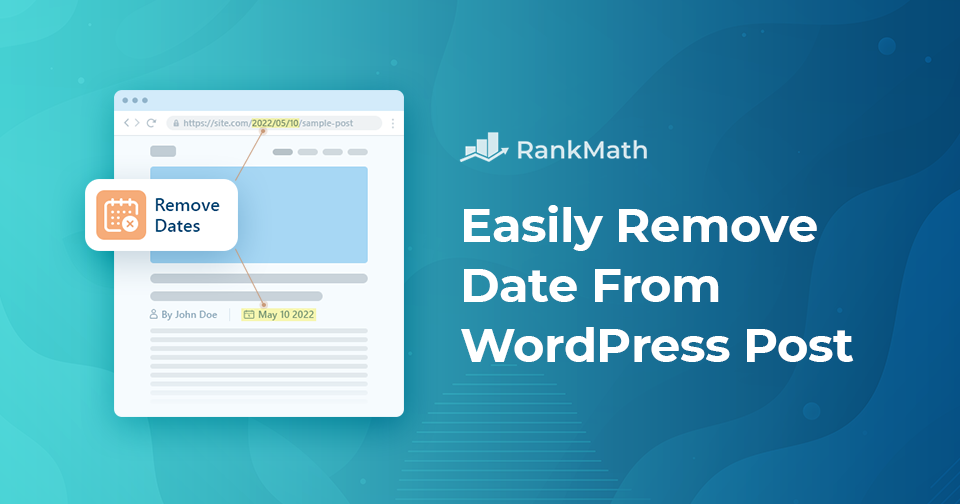Do you want to remove the date from your WordPress posts but aren’t sure how to do it?
Sometimes, showing a post date can make your content look outdated, especially if it’s evergreen and still valuable to readers.
By hiding the date, you can give your articles a fresh, timeless feel that keeps visitors focused on the content itself rather than when it was published.
In this post, you’ll learn simple methods to remove the date from WordPress posts without breaking your site’s layout or design.
Table Of Contents
1 Why Do Dates Appear in WordPress URLs?
Dates appear in your WordPress URLs because of the permalink structure you select. If you use a “day and name” or “month and name” permalink option, WordPress automatically adds the publication date to your post URL.
For instance:
- With date in URL (Day and Name structure):
https://yourwebsite.com/2026/09/08/how-to-start-a-blog/ - With date in URL (Month and Name structure):
https://yourwebsite.com/2026/09/how-to-start-a-blog/ - Without date in URL (Post Name structure):
https://yourwebsite.com/how-to-start-a-blog/
If your blog is time-sensitive (like news updates), keeping dates can be useful since readers want to know when the article was published. But if your content is evergreen, dates in the URL can make it look outdated even if the information is still accurate.
Fortunately, WordPress allows you to change the structure of your URLs and create more meaningful and SEO-friendly URLs. It gives you many options under the Settings → Permalinks page.
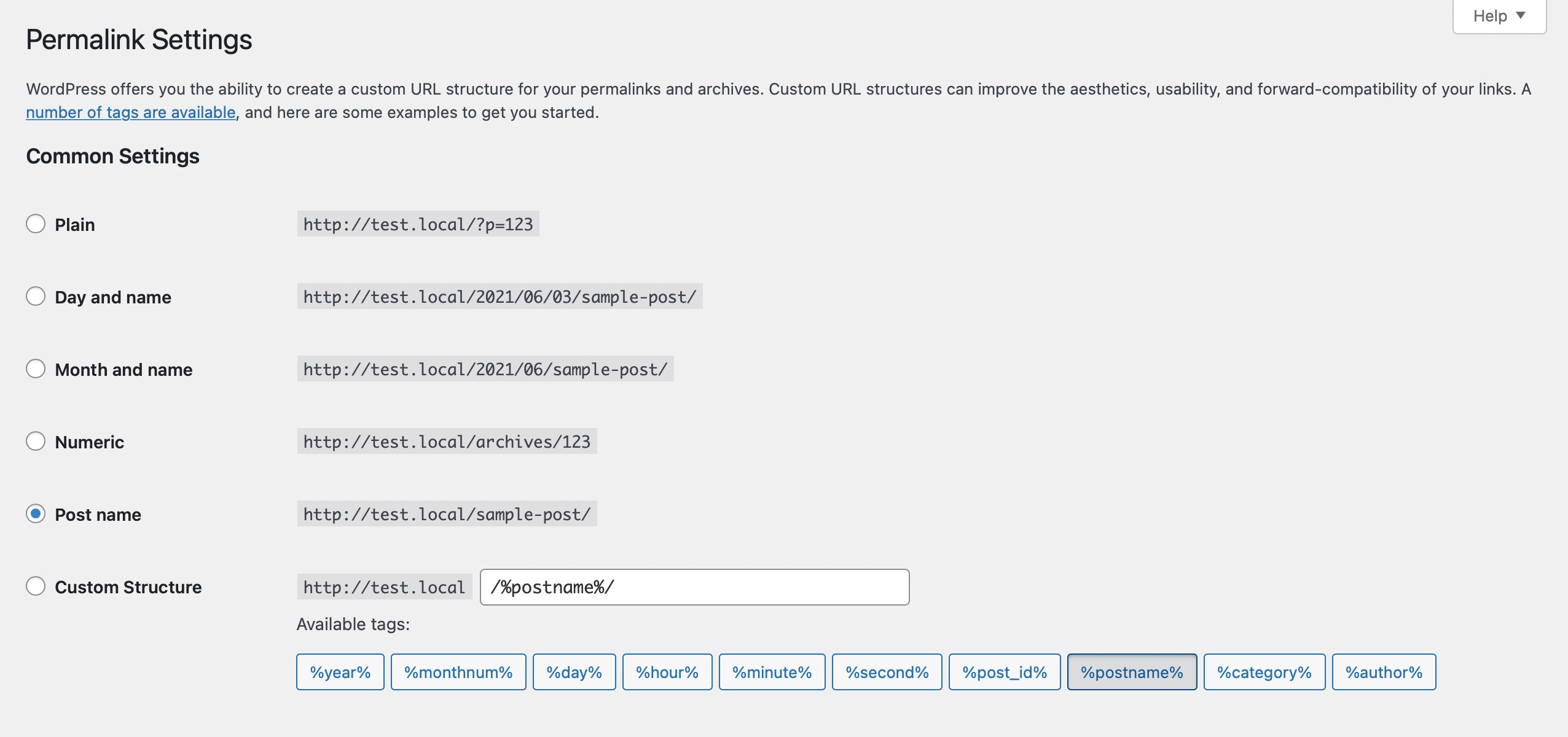
The Post name or Custom Structure formats are usually preferable. These formats make your URLs more legible for visitors while still providing search engines with the information they need to index your sites appropriately.
2 Importance of Removing the Post Dates
Let us now discuss the importance of removing the post-dates.
2.1 Enhance User Experience
When you share your blog links on social media or other platforms, you want users to clearly see where the link will take them. If your URL includes a date, it often gets cut off, hiding the actual post title. This makes the link less appealing and can discourage users from clicking. By removing dates, your links stay clean, easy to read, and more inviting to click.
2.2 Keeps Content Relevant to Google and Users
Picture yourself scrolling through Google search results. You see two posts with nearly identical titles. One has a clean URL like:
yoursite.com/post-title/
The other includes an old date, like:
yoursite.com/2022/08/14/post-title/
Which one would you choose? Most likely the first, because it looks more current and relevant. By removing dates from your URLs, you make your content look fresh, improve click-through rates, and give your site an edge in search results.
3 How to Remove the Date From WordPress Posts
You can remove the date from WordPress posts using either the dashboard settings or a plugin.
Note: Always create a fresh backup of your website. Anytime you make changes, it’s important to have a recent backup so you can quickly restore your site if something goes wrong. If you need help, refer to our dedicated tutorial on backing up your WordPress site.
Also, if you’re removing dates from your URLs, you’ll need to set up proper redirects. Without them, visitors may land on broken pages (404 errors). Rank Math’s Redirect Manager makes this process simple. With redirects in place, anyone visiting the old URL will automatically be taken to the new one, and search engines will understand that your content has moved.
Now let’s have a look at both the methods in detail.
3.1 Remove the Date From WordPress Settings
To remove the date from WordPress posts, navigate to Settings → General from your WordPress dashboard. Here on the Custom field, remove or delete the F j, Y as shown below, and click on the Save Changes button.
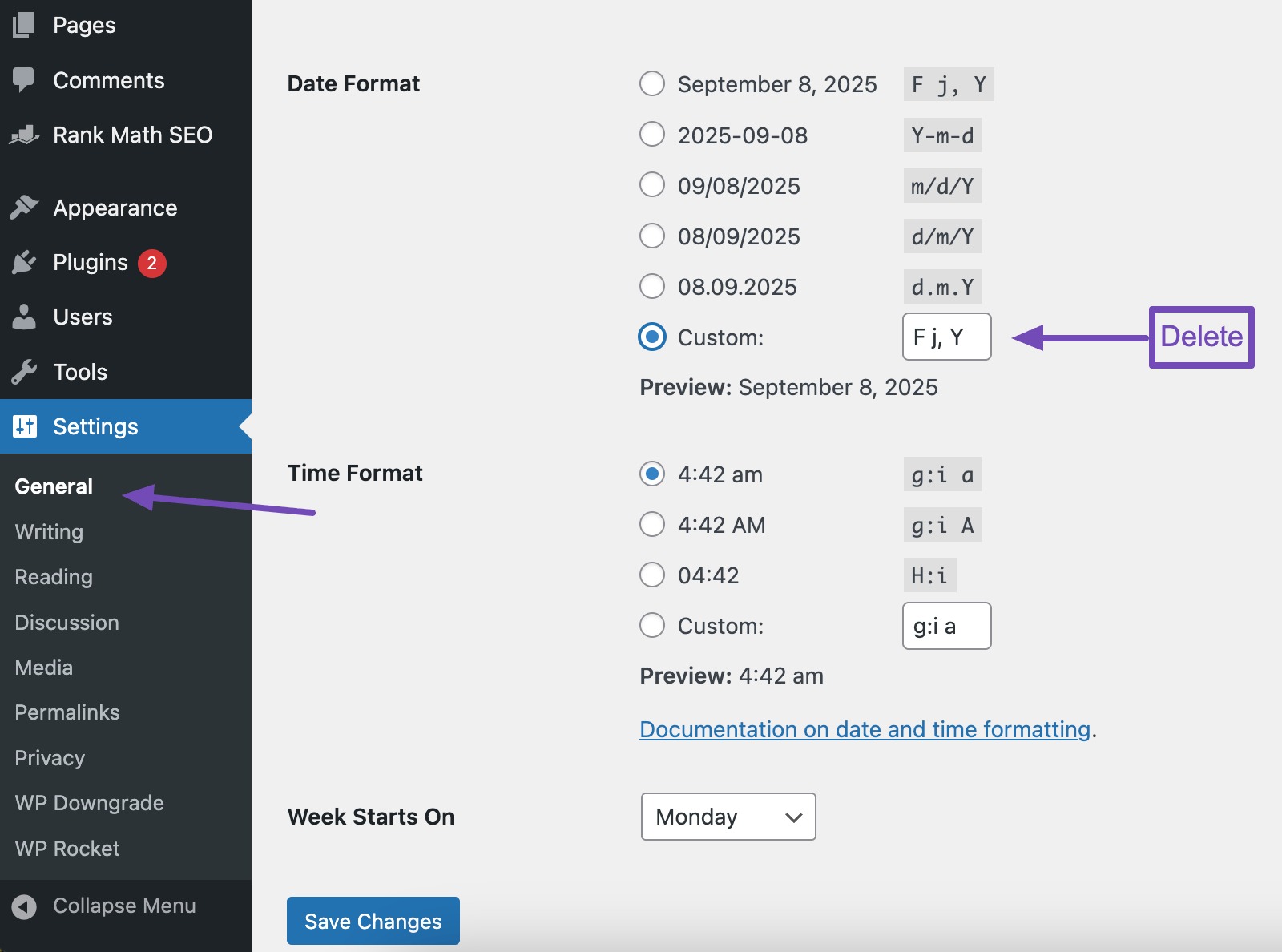
This quick method hides the date from your posts without needing a plugin.
3.2 Remove the Date by Using a Plugin
Several free WordPress plugins are available to remove the date from WordPress posts. However, out of all of them, you must choose the optimum one that would work best for you. In this instance, the WP Meta and Date Remover WordPress plugin is recommended.
At first, install and activate the plugin by navigating to Plugins → Add Plugin section from your WordPress dashboard.
Search for the WP Meta and Date Remover plugin in the search bar, install and activate it. Refer to our dedicated tutorial on installing and activating plugins on your WordPress site.
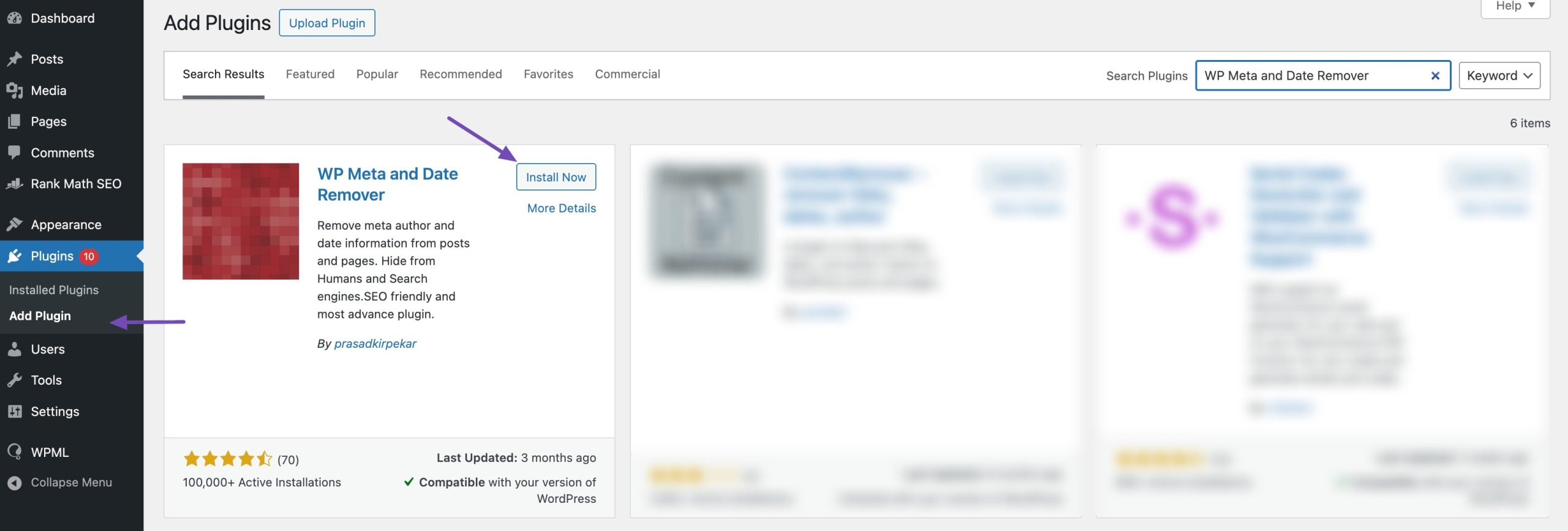
As you can see below, the date for the post is visible. With the help of WP Meta and Date Remover, you can remove the date.

Once installed and activated, navigate to Settings → WP Meta and Date Remover, and you’ll see options to hide post dates and other metadata. Choose whether to hide from backend(Page Source), frontend or both and save your changes.
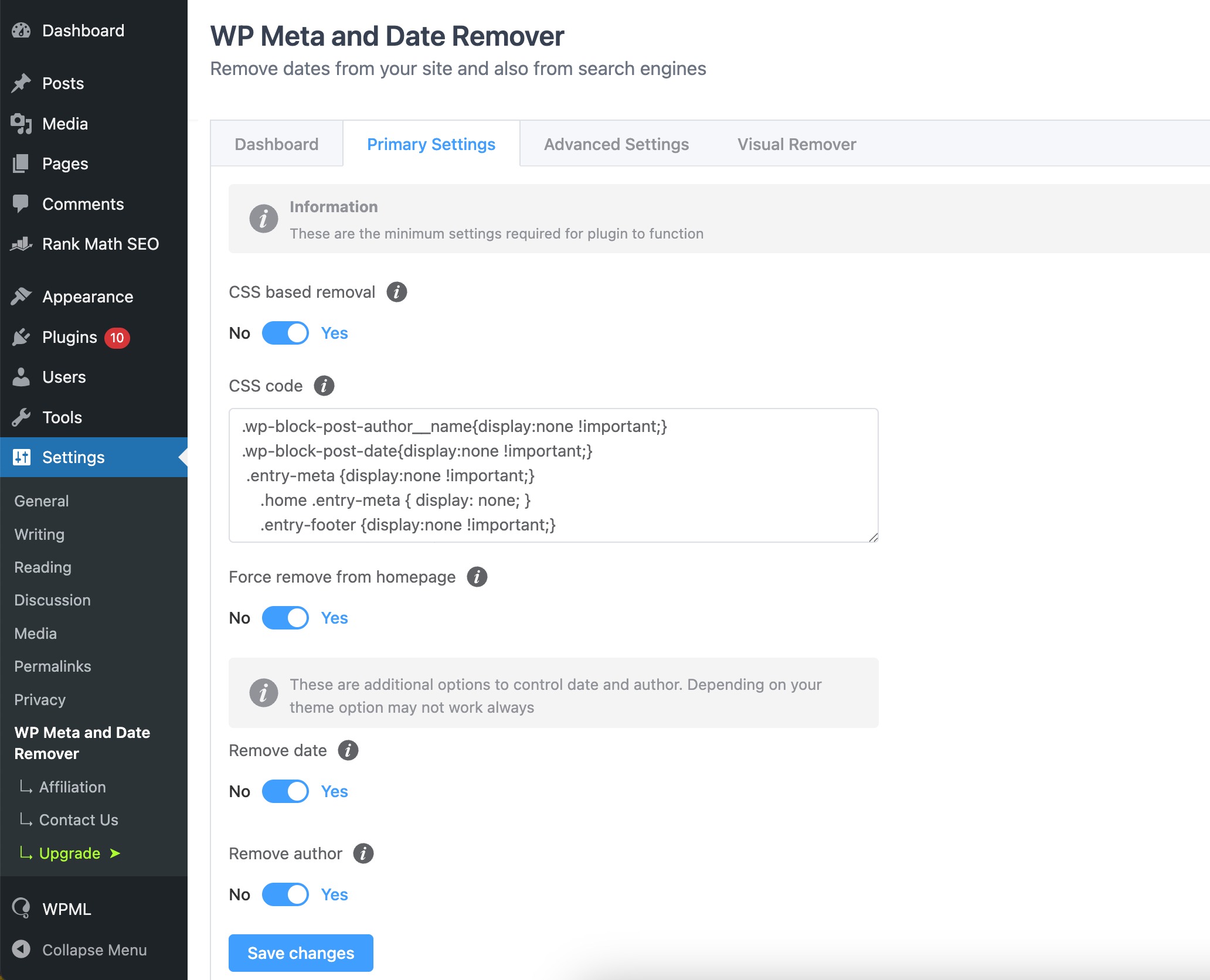
Visit your website. The date should be removed from the front end.

4 How to Hide the Date From WordPress Posts
Let us discuss methods for hiding the date from WordPress posts. Hiding doesn’t delete the date or its metadata; it simply prevents the date from showing on the front end of your site. This means search engines and your WordPress database will still keep the information, but visitors won’t see it when they browse your posts.
4.1 Use the CSS Method to Hide the Date
You can use custom CSS to hide the dates from your WordPress posts.
To do so, navigate to Appearance → Customize from your WordPress dashboard.
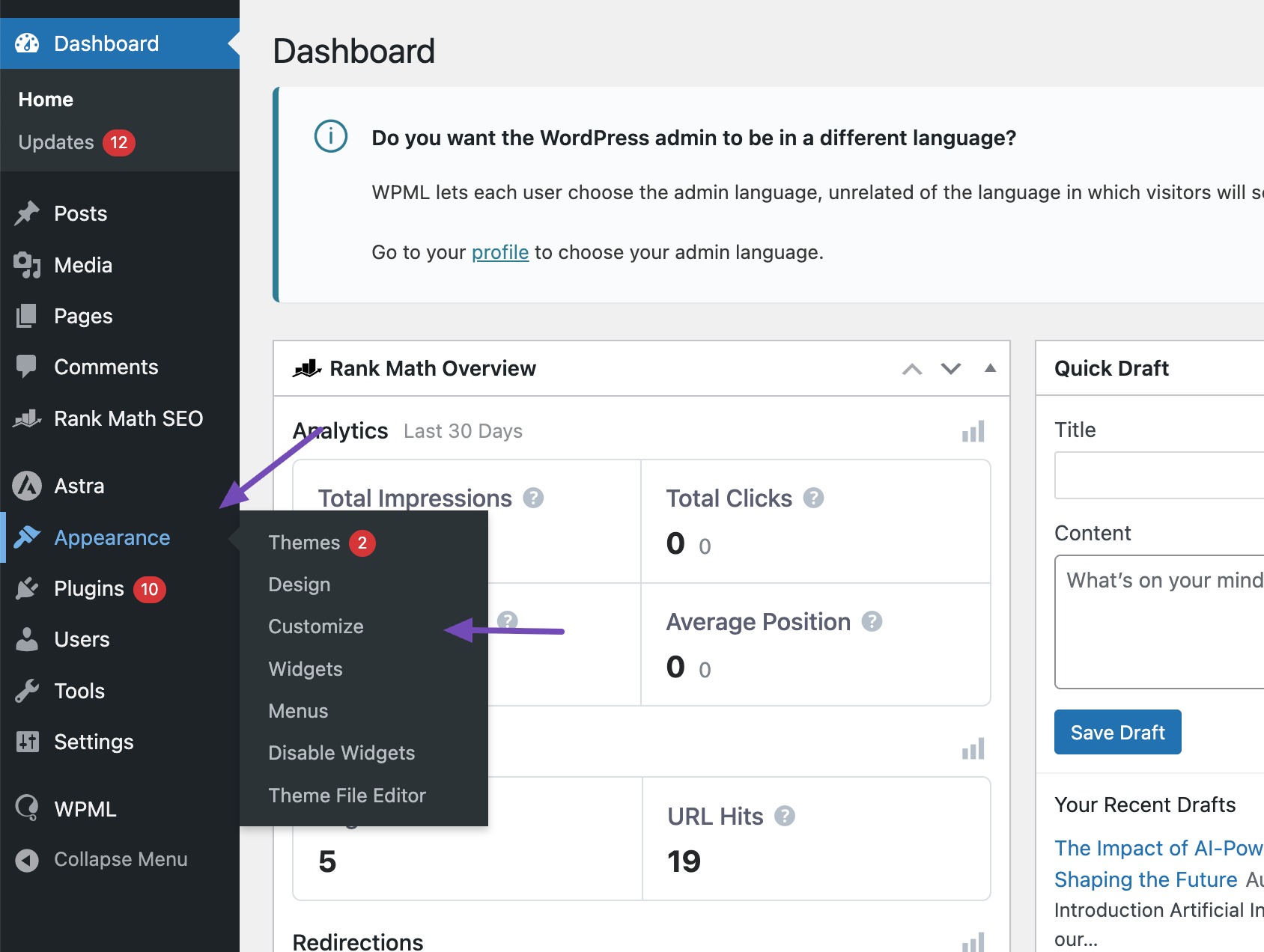
Navigate to Additional CSS control which is usually located at or near the bottom of the left menu.
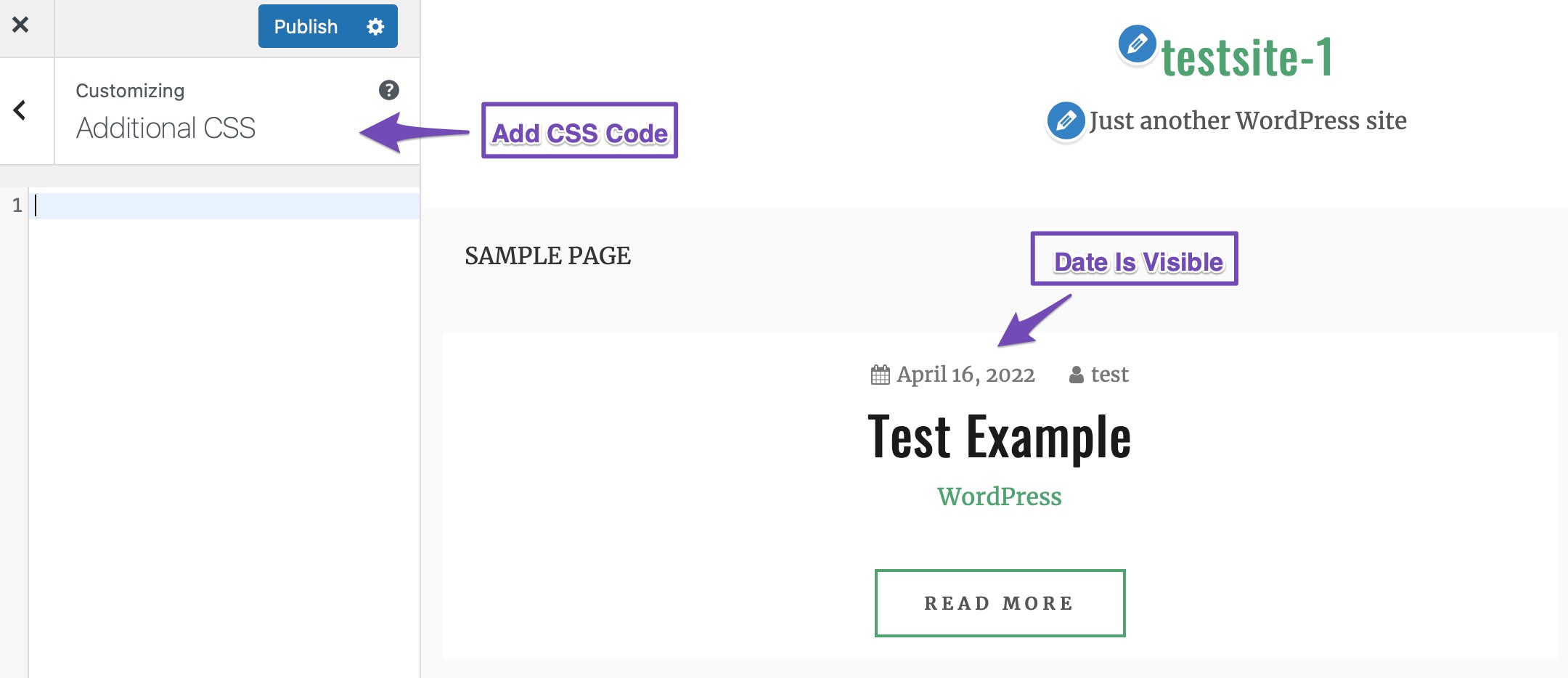
Insert the following code in the CSS entry field.
.entry-date published {
display: none;
}If the above code doesn’t hide the date, check the CSS class, right-click on the date, and select the Inspect Element option.
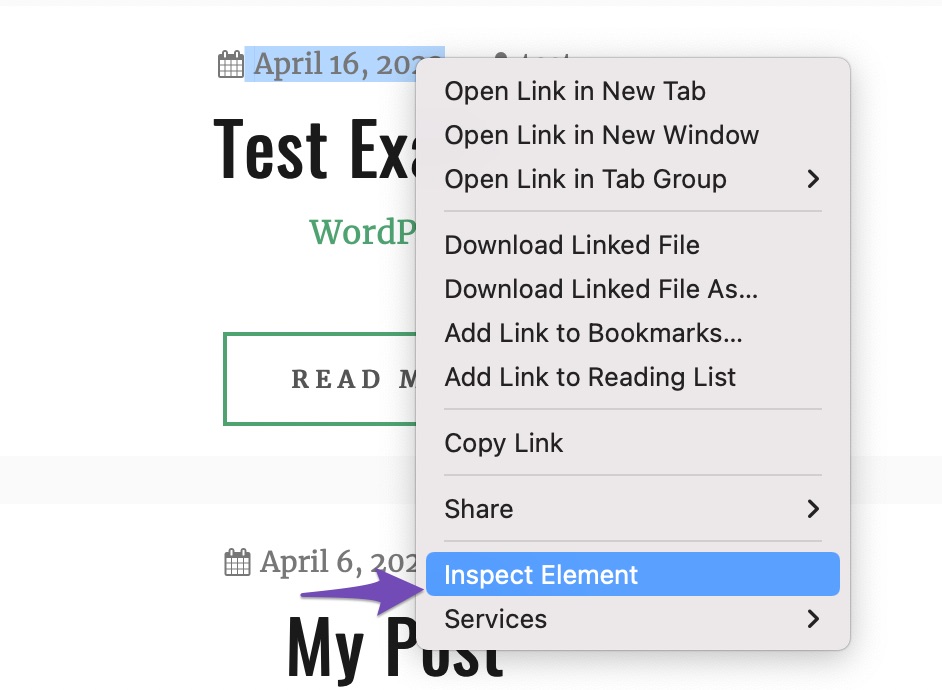
The area for developer’s tools will appear. The right-clicked page element (the post date) will be highlighted. The CSS class is usually visible in the highlighted portion, as shown below.

Copy the class name and set display: none.
.class-name
{
display: none;
}Replace the class name with your theme’s post date class name, and paste it to the Additional CSS section.
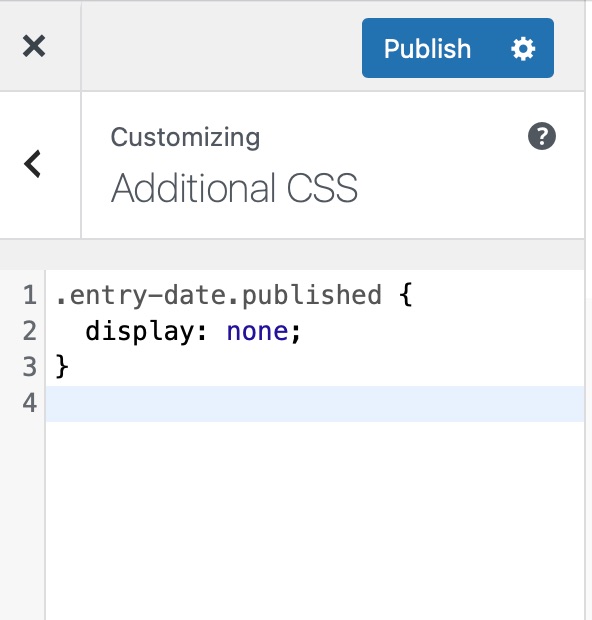
Once you’ve added the CSS code, click on the Publish button. The date will now be hidden from the WordPress post.
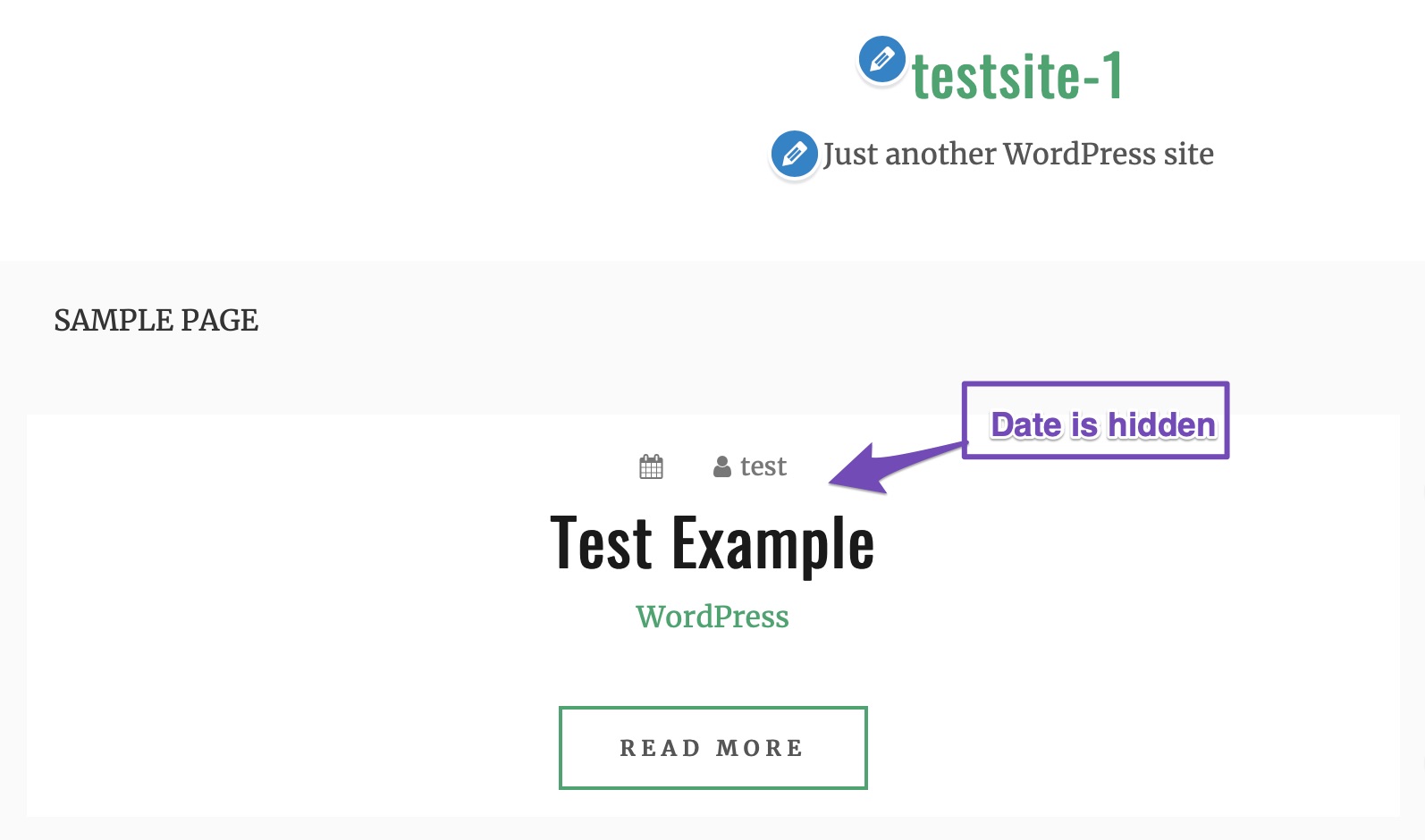
However, note that this method doesn’t completely delete the date and time. It only hides the date and the metadata from the front end.
4.2 Use the Theme Editor to Hide the Date
You can remove the date from WordPress posts using the WordPress theme editor.
To do so, navigate to Appearance → Theme File Editor from your WordPress dashboard.
Under the Template-parts folder, select the template file, mostly named content.php, and remove the date code.
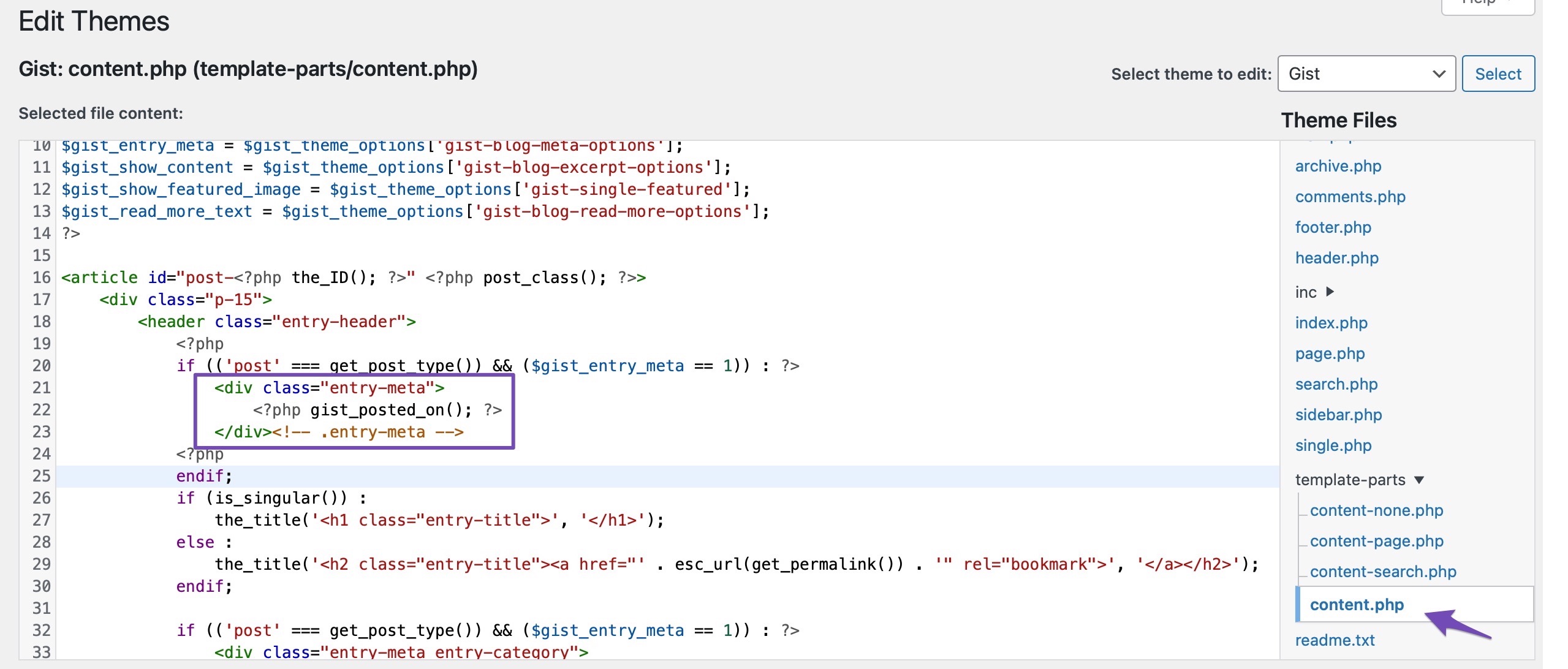
When you save and refresh, the date will be removed from your WordPress posts.
5 Conclusion
Now that you know how to remove the date from your WordPress posts, you can make your content look fresh and evergreen.
Whether you use a plugin, custom CSS, or edit your theme files, you have simple options to hide dates without affecting your site’s functionality.
Choose the method that works best for you and keep your posts clean, professional, and more appealing to both readers and search engines.
If you like this post, let us know by tweeting @rankmathseo. 💬
